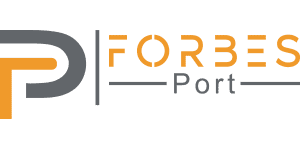Freight Forwarding Optimizing Routes And Reducing Transit Times

Effective supply chain management is dependent on the skill of freight forwarding in the complex world of global trade and logistics. Route optimisation and transit time reduction are key components of this practice that substantially impact the efficiency and economy of shipping operations. As a strategic enabler, freight forwarding prioritises route optimisation, cutting-edge technology integration, and creative thinking to maximise cargo flow and minimise transit times. dubai shipping companies are essential for satisfying consumer demands for quick delivery, making the most use of available resources, and improving the general effectiveness of global supply chains. When negotiating the complexity of freight forwarding, freight forwarders must grasp the subtleties of route optimisation and transit time reduction.
Read More fulltrv
Recognising The Fundamentals Of Freight Forwarding
The core function of goods forwarding, which ensures the seamless flow of products across borders, is at the centre of global business. This diverse field includes anything from organising forms of transportation to handling paperwork, clearing customs, and logistics. Its responsibilities go beyond simple transportation, including risk assessment, strategic planning, and adherence to international laws. Comprehension of the foundations of goods forwarding requires a comprehension of the complex web of carriers, agents, and stakeholders, as well as the subtleties of trade routes and modes of transportation, all of which are coordinated to make it easier for commodities to move seamlessly throughout the world market.
Techniques For Freight Forwarding Route Optimisation
A key component of efficient goods forwarding is effective route optimisation, which uses a variety of cutting-edge strategies to optimise supply chain processes. Numerous elements, including distance, method of transportation, cost, transit time, and even environmental factors, must be carefully analysed throughout this optimisation process. Finding the best routes depends heavily on advanced technology like real-time data analytics and AI-driven algorithms. Furthermore, consolidation tactics are used by freight forwarders to combine shipments to maximise cargo capacity and minimise vacant space, hence lowering total transportation costs. Providing access to various transportation networks and alternate routes, guaranteeing resilience against disruptions, and flexibility in meeting changing customer needs, cooperative partnerships and strategic alliances with carriers and logistics providers improve route optimisation.
Using Technology To Plan Routes More Effectively
Technology is emerging as a key factor in contemporary logistics, revolutionising freight forwarding’s ability to design routes effectively. Innovative software programs and online platforms enable logistics experts to plan and optimise routes with unmatched accuracy. Powered by artificial intelligence planning algorithms create the most economical and efficient shipping routes by analysing a wide range of data points, such as weather, traffic patterns, fuel efficiency, and past transit data. GPS-enabled gadgets and real-time tracking systems offer constant visibility, making it possible to modify routes instantly in reaction to changing circumstances. Cloud-based solutions enable rapid judgement and collaboration across the supply chain by facilitating smooth communication between stakeholders. Adopting technology can reduce transportation times while improving route efficiency.
The Function Of Freight Forwarders In Reducing Travel Times
By taking calculated risks to cut down on shipment transit times, goods forwarders are essential players in the intricate web of international logistics. As orchestrators, professionals of cargo services dubai painstakingly arrange and coordinate the best possible routes, means of transport, and logistical procedures. Freight forwarders use their vast networks and experience to determine the best air, the ocean’s edge road, or rail route combinations to transport cargo quickly and efficiently while reducing transit times. They utilise various strategies, such as grouping shipments and optimising cargo capacity, to guarantee efficient procedures that reduce needless delays. Their skill in handling compliance requirements and customs laws also speeds up the clearance process, cutting down on total travel time.
Optimising Effectiveness: Selecting Appropriate Modes Of Transportation
The key to maximising effectiveness in goods forwarding is choosing the right transportation options based on unique logistical requirements. The size, urgency, cost, and destination of shipments are just a few of the many variables freight forwarders carefully consider when choosing the best form of transportation. Air freight becomes the preferred option for deliveries that must be made quickly since it is the fastest and most reliable option, even if it is more expensive. On the other hand, even though it moves more slowly, sea freight is more economical for larger goods going farther. These modalities are complemented by road and rail freight, which offers intermodal and regional transit flexibility. Through skilful matching of the specific needs of each consignment with the most appropriate transportation and logistics companies dubai guarantee effective and customised logistics solutions that maximise efficiency, shorten transit times and satisfy the various demands of international supply chains.
Freight Sending: Real-Time Monitoring And Visibility Solutions
Within the dynamic realm of goods forwarding, real-time visibility and monitoring technologies have become essential instruments for effective supply chain management. These cutting-edge technology solutions are very beneficial to product sending. Proactive decision-making, which enables quick reactions to interruptions, rerouting possibilities, and optimising logistical operations, is made possible by this degree of openness. By offering a smooth and transparent shipping experience, goods forwarders assure improved visibility, strengthen dependability, and inspire trust in clients through IoT sensors, GPS-enabled tracking, and cloud-based platforms.




